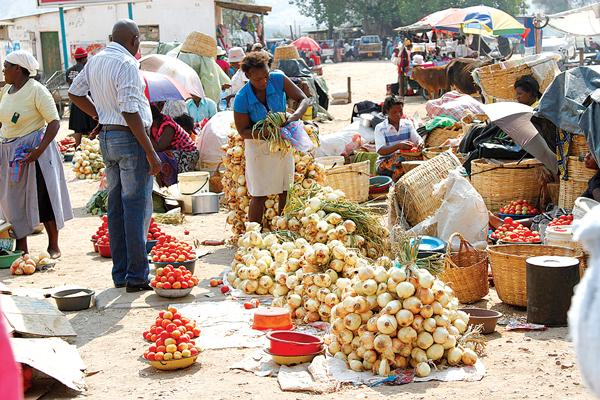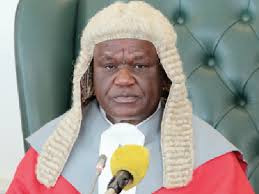
Vince Musewe “IF our fundamental political and economic structures have not changed significantly from the past, it simply means that we can neither expect nor create new outcomes”
The transformation of any society requires three things; first the profound realisation that it must change, second is finding those practices that will cause the change and third is adopting those practices. I think this is now the case in Zimbabwe.
In order to achieve our economic objectives as a country, especially with regard to incomes and quality of life, we must create an inclusive industrialised and democratic developmental state in Zimbabwe.
“The Developmental State” is a term coined by Chalmers Johnson that is used to describe states which follow a particular model of economic planning and management. It was initially used to describe post-1945 Japan and its rapid modernisation and growth.
A simple definition would be that “A Developmental State is a state where the government is intimately involved in the macro and micro economic planning in order to grow the economy”, with the addition “while attempting to deploy its resources in developing better lives for the people”.
What are the characteristics of a developmental state?
The Japan lists the characteristics of Developmental States as the following:
- A government with the political will and legitimate mandate to perform the required functions;
- A competent and neutral bureaucracy that ensures implementation. This requires a strong education system and efficient set of public sector organisations with little corruption;
- An institutionalised process where the bureaucracy and government engages with other stakeholders; and
- An established development framework and a comprehensive governance system to ensure the programme is implemented, e.g. a central function responsible for overall co-ordination.
China, Singapore, India, Thailand, Taiwan, Vietnam, Malaysia, South Korea, Philippines and Indonesia are all categorised as developmental states
- Chamisa under fire over US$120K donation
- Mavhunga puts DeMbare into Chibuku quarterfinals
- Pension funds bet on Cabora Bassa oilfields
- Councils defy govt fire tender directive
Keep Reading
Accordingly it is agreed that the developmental state not only refers to the collective economic and human development, but also describes the state’s essential role in harnessing national resources and directing incentives through a distinctive policy-making process.
The State’s role as a partner with the private sector in the national industrial transformation. The State is a catalytic agency and managers respond to the incentives and disincentives the state establishes.
In my opinion high on the agenda must be a stable and peaceful socio-political environment. Investors are certainly not attracted to a country where there is continuous political bickering and uncertainty. A stable socio-political environment contributes to growing confidence. Resolving the political questions must, therefore, be high on the agenda and it is important any political meaningful dialogue must be inclusive and unconditional if we are to put national interest first.
Second is the issue of institutional reforms. It is clear that without the appropriate institutional arrangements, any developmental initiatives are bound to fail.
Zimbabwe’s institutional capacity to deliver has been hugely compromised and we must begin to see better national budget expenditure control, a reformed the public service, dealing seriously with corrupt behaviours, dealing with the ease and cost of doing business and integrating our economy into global markets especially on trade and finance.
It is insightful to note that even World Bank, after many years of advising the adoption of market-based reforms in developing countries, concluded that the results fail to create inclusive growth or change the underlying economic structures. In their report Economic Growth in the 1990s (2005) and The Growth Report (2008) admits that “the principles of … “macroeconomic stability, domestic liberalisation, and openness” have been interpreted narrowly to mean “minimize fiscal deficits, minimise inflation, minimise tariffs, maximise privatisation, maximise liberalisation of finance”, with the assumption that the more of these changes the better, at all times and in all places — overlooking the fact that these expedients are just some of the ways in which these principles can be implemented”.
There is no doubt that the Zimbabwe economy to this day remains an enclave economy. We have failed dismally since 1980 to transform this dualistic colonial economy to a modern industrialised inclusive economy. An enclave economy is an economy whose structure comprises of a formal sector, which is the main economic “actor”, an urban based informal economy which is pervasive and employs a majority and a rural economy which is survivalist. In fact in Zimbabwe we have seen a shrinking formal sector and expanding informal and rural sectors.
Instead of transforming our economy to an inclusive industrialised modern economy, we have moved in the opposite direction of massive deindustrialisation, increasing poverty levels unemployment and a survivalist society.
This must surely be our main cause of concern and a concerted effort to restructure our economy something which is clearly not happening. Without this, it is almost impossible to move our economy into a productive high employment economy and create of internal demand, local savings and re-investment which are the key drivers of internal self-driven growth and development.
In my opinion, the key to meaningful transformation and moving towards a more appropriate economic structure is “the rapid modernisation and industrialisation of our provincial economies, and the creation of inclusive growth, creating local employment opportunities, eradicating poverty and ensuring that provincial economies are the ultimate beneficiaries of their factor endowments”.
It is a fact that despite our devolution speak, our provincial economies remain politically managed and not economically autonomous. Until we see each of our provinces coming up with own comprehensive developmental plans whose core must be industrialisation through value addition and beneficiation of factor endowments we will not see any meaningful socio economic transformation.
In addition to this provincial industrialisation we have to see the emergence of democratic developmental state whose key attributes, as articulated in the book Towards Democratic Developmental States in Southern Africa (Weaver Press 2017) include;
- Development-oriented political leadership with a high level of commitment and will to attain economic and social development and to reduce inequality and poverty;
- A highly competent, professional and committed bureaucracy with a strong planning capacity that is able to implement developmental policies and programmes;
- Political legitimacy to take developmental decisions, for example the process followed to determine developmental goals and whose interests they serve;
- The state not only regulates markets (which are political constructs) but also directly influences the operations of the market;
- The state provides a vision for society and creates the institutions required to achieve this vision;
- The state defies the principle of international comparative advantage and instead focuses on the development of productive capacities and human development based on social needs;
- The State has social anchoring and robust societal institutions to prevent it from behaving in a predatory manner (democratic oversight to ensure the attainment of socially desirable development outcomes);
- The State mediates conflicts around the development trajectory between various interests with a view to ensuring the broadest possible support.
In my opinion, if our fundamental political and economic structures have not changed significantly from the past, it simply means that we can neither expect nor create new outcomes. We therefore still have a long way to go to see an emergence of a democratic inclusive and industrialised developmental state in Zimbabwe.










